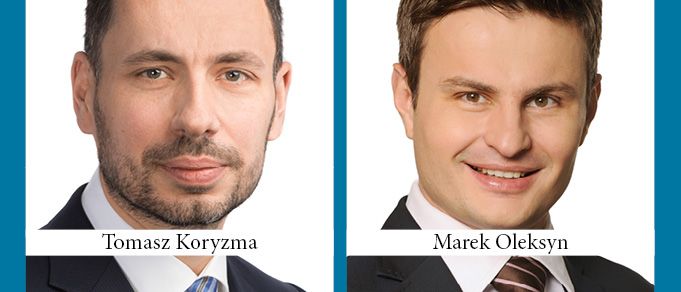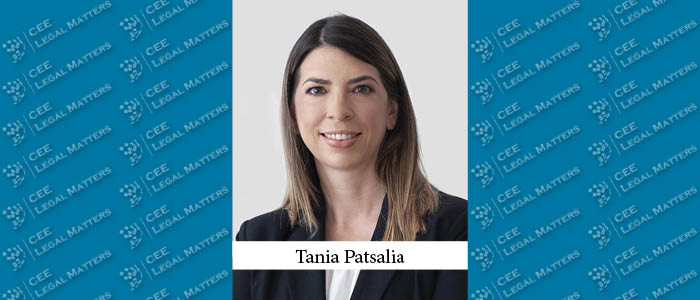The corporate bond market in Poland has continued to develop steadily throughout recent years and experienced marked growth in 2016. This is mainly due to the fact that the whole market continues to function in an environment of low interest rates.
Current Difficulties with VAT Refunds in Real Estate Transactions
The Polish tax authorities have once again changed their view on the VAT classification of specific activities. This time, the shift in opinion concerns real estate deals. Until quite recently, tax authorities agreed that in general the sale of a commercial building constituted a supply of goods and thus was subject to VAT.
Intellectual Property Rights in Montenegro
The development of intellectual property rights in Montenegro started when Montenegro became independent in 2006 and since the Intellectual Property Office of Montenegro – which deals with industrial property rights – started operations in 2008.
Serbia’s Intellectual Property Rights Enforcement Overview
Intellectual property infringement through the circulation and sale of counterfeit goods is still very much both a global and a local issue. As modern day counterfeiting is now acquiring more sophisticated forms involving a plethora of new and usually unsuspected goods (for example, pharmaceuticals) and with the intent of not only existing on the black markets but infiltrating into the legal market flows as well, we are faced with the need for a more aggressive approach requiring first and foremost improved legislation and subsequently more efficient enforcement activities.
Industrial Property Law and Protection of Intellectual Property Rights in Turkey
The Turkish Law on Industrial Property (the “Law”) was published and entered into force on January 10, 2017.
Romania: Practical Information Regarding ccTLD (.RO) Domain Name Disputes
One of the astringent issues faced by intellectual property rights (IPRs) holders nowadays is enforcing their rights on the Internet, whether in conflicts deriving directly from the act of selling counterfeit products over the Internet or those involving domain name disputes. This latter concern is the focus of this report.
Commercial Use of Unlawful Software in Slovenia
On-site inspections conducted by the Market Inspectorate of Slovenia in the last decade have shown that approximately 9% of all software installed on company computers lack the necessary permission of the rightful copyright holders. At the same time, over 40% of inspected companies had at least one unlawful computer program installed when inspected. Results show that SMEs are especially prone to such practices.
Slovakia (Finally) Introduces Specialized Court for Industrial Property Disputes
As part of the long-planned reform of intellectual property (IP) law in Slovakia, it was finally agreed that IP disputes should be handled by a court system able to truly understand the (often rather technical or technological) nature of IP. This decision stemmed from the frustration of many IP owners with the fact that court decisions sometimes lacked sufficient quality and that the proceedings (especially in some courts) took far too long.
Intellectual Property in Russia
Intellectual Property protection in its modern sense is considered to be quite young in Russia. Although Russia is not far behind world standards for protection and enforcement of Intellectual Property, major changes took place in Russia in 2008. Almost ten years ago the Fourth Chapter of the Russian Civil Code incorporating various Intellectual Property-related rules came into effect. Of course, this area of law is still changing, leading to new amendments, improvement proposals, and legal discussions.
Legal Status of Software Under IP Laws of Belarus
As a prominent IT-hub in CEE, Belarus gave life to quite a few players in the international IT arena, including EPAM, Wargaming.net, Viber, MAPS.ME, MSQRD, Prisma, and many, many others. More and more Western software and hardware companies are entering into long-term partnerships or other contractual relationships with Belarusian talent. In this context, the basic principles of Belarusian legal regulations that govern the protection and transfer of IP rights related to software are increasingly important.
Are IP Right Holders Worse Off After Litigating?
Civil damages awards are one of the primary – and often most important – remedies for infringements of intellectual property rights. Damages serve both as compensation to the right holder for the economic detriment that results from an infringement and as a specific and general deterrent to would-be infringers. – The European Observatory on Counterfeiting and Piracy, “Damages in Intellectual Property Rights” (2009/2010).
IP Challenges for Hungarian Startups
Kinstellar Budapest moderated a panel discussion as part of the Startup Safary Budapest 2017 startup exhibition, which included sharing insight on the start-up ecosystem and expectations for 2017 in Hungary.
Major Change to Czech Pharmaceutical Legislation: MA Holders’ New Obligation
The Czech Parliament recently passed a bill amending the country’s Pharmaceutical Act to restrict the exportation of pharmaceuticals from the Czech market that has, in the past, resulted in a shortage of some medicinal products within the country. The Czech pharmaceutical market is thus facing a substantial change once the amendment becomes effective on December 1, 2017.
Patent Assignment and Licensing in Poland
With ever-increasing spending on research and development and innovation, patents and patent applications are becoming an increasingly important part of business throughout the world, including Poland. Patentable inventions as well as confidential technological know-how now constitute key assets of numerous businesses operating across all sectors of the Polish market.
Persons Entitled to File a Claim to Terminate the Exclusive Right of a Trademark Holder for Non-Use in Estonia
Some time ago the Supreme Court of Estonia issued Decision No 3-2-1-167-14 in a cancellation action involving the substantial question of determination of an interested party. This decision expanded the rights of the trademark owners. However, even though the decision provides some insight on which interested parties may file a cancellation action based on non-use of a trademark, the term “an interested party” still remains vague in Estonia.
Large Body of New Regulation to Affect Financial Services and Data Protection
Legislators on both the European and Czech level have been active in adopting new regulations that influence several areas of the modern economy. Financial services, with consumer finance on one side and markets in financial instruments on the other, have been at the center of these efforts. Financial regulation is not, however, the only measure heavily affecting banks, investment firms, and FinTech companies by putting new compliance requirements in place. Another huge legal instrument – the General Data Protection Regulation adopted on the EU level in 2016 – imposes new requirements on all companies dealing with personal data.
Czech Market Snapshot: GDPR - Storm in the IT Cup?
In the Czech Republic, the most important buzzword in the field of legal services and IT deliveries is “GDPR-Compliance” and it has serious ramifications for organizations, businesses, and public corporations.
New Regulatory Framework for Payment Services in the Czech Republic
As the Directive of the European Parliament and of the Council on Payment Services in the Internal Market (PSDII) introduces a number of changes to existing Czech legislation, a completely new Payment Services Act regulating the provision of payment services will be adopted in the Czech Republic. PSDII should be implemented by January 13, 2018.











































